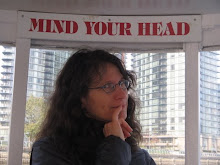A Time to Believe and a Time to Doubt
First, they told me that God created the heavens and the earth. And I believed. Then they told me the Bible was God's word. And I believed. And the Bible said that God was Good. And I believed. Then I learned about the stars as old as the hills, and the hills as old as the stars. I learned about stars so old and so far away, that though they shine on us every night, they're dark where they began. They're so far away, they're already dead, and they sure are taking their time to get to us. I learned about the rocks of ages through carbon dating. I examined the chart of the pleistocene and mezocene and all the cenes and era after era after era - a gadjillion eras a gadjillion years ago.
Then someone told me that the Bible says the heavens and the earth were made 6,000 years ago - not so long ago. Well, it seemed plain to anyone who could count that a gadjillion years was a bit more than 6,000. Where did the Bible say that? Well, Bishop Usher, in the time before TV, calculated the time by working backwards from the geneologies of the people listed in the Bible. I didn't know what to believe.
Then someone told me that the Bible did not say that the heavens and the earth were made 6,000 years ago. Bishop Usher may not have understood everything there was to understand about genealogies in the 1600's BTV. For example, sometimes entire generations were not listed because the authors of the genealogies, had their purpose, and their purpose was to highlight the important family members, the achievers, the one's we'd recognize as helping to move the story forward. All right then, I could live and breath again if it was Usher vs. Science. Let them battle it out and may the best mind win. No need to pit God against Science. God who was Good and had all knowledge, and Science who was Smart. They could be friends again.
And then someone asked me if Adam had a belly button. I imagine God forming Adam from the dust of the ground, breathing life into him. An umbilical cord? A placenta? Lots of goop like in Terminator? I'm just not seeing it. They suggested that God could make the heavens and the earth with clues for scientists to find to make them think that the earth was a gadjillion years old. Is that Good? Did God do that? Did he embellish Adam with a belly button?
And then, just last night, I read more about Bishop Usher's work in When God Spoke English THE MAKING OF THE KING JAMES BIBLE by Adam Nicolson - Now a Major BBC Television Programme. Bishop Usher "calculated that God created the earth on Sunday 23 October 4004 BC, at nine o'clock in the morning, London time, or midnight in the Garden of Eden." Midnight in the Garden of Eden. Now why don't we celebrate the birth of earth every October 23rd at midnight? How could this extraordinary bit of information have escaped me for the fifty years that I have believed that God created the heavens and the earth. Another thing I believe is that no one knows the day or the hour when time's up. I doubt that anyone knows the day or the hour when time began....and ever will. And since I have one, I can put that in my bellybutton and contemplate it.



